29 Sep Navigating Agricultural Terrain: Choosing the Perfect Farm Tire from East Bay Tire
When it comes to agricultural operations, the right farm tire can make a world of difference. Whether you’re tilling fields, hauling heavy loads, or navigating wet terrain, having the appropriate tire can significantly impact productivity, efficiency, and overall performance. In this guide, we’ll delve into the key considerations for selecting the right farm tire for various applications and highlight why East Bay Tire stands out as the premier choice for all your agricultural tire needs.
Understanding the Variety of Farm Tire Applications
Tractor Tires:
Tractors are the backbone of any farming operation. Whether you’re plowing, cultivating, or seeding, tractor tires need to provide excellent traction, durability, and stability. Choose tires that fit your soil conditions and tractor utilization is critical.
Harvesting Equipment Tires:
Harvesting equipment such as combines and grain carts require tires that can withstand heavy loads while maintaining high performance. These tires are used during critical time periods of the year and must perform loaded, unloaded, on the road and in the field. While they may only be used for part of the year, better tires can improve fuel efficiency, reduce harvest time, and minimize soil compaction. We highly recommend pre-harvest tire inspections to reduce downtime and identify potential tire concerns before the action starts.
Sprayer Tires:
More technology and investment has been put into sprayer tires than any other application in recent years. These tires may be on small towable machines or large self propelled giants. Opt for tires that provide low ground pressure and minimize soil disturbance. Tires with a wide range of operating air pressures (VF) and/or high speed ratings will provide more versatility in usage and better application performance.
Carts and Wagons Tires:
Tires for carts and wagons should be able to handle heavy loads without damaging crops or soil. Consider tires with reinforced sidewalls and high load-carrying capacities for efficient transportation.
Utility Vehicle Tires:
Utility vehicles are used for various tasks around the farm. Choose tires that strike a balance between off-road performance and road comfort, ensuring smooth rides and dependable grip.
What are the Different Farm Tire Classifications?
Understanding different farm tires and their intended uses is crucial for maximizing productivity and minimizing soil damage in agricultural settings. Farm tires come in various classifications that original stem from where they fit on the farm. Before four-wheel drive power units, R-Class tires indicated Rear wheel position. F-class tires indicated Front wheel position. I-Class tires were designed for implement applications. Today, these tires are much more interchangeable but the numbering still represents the tire’s design. Each classification has its unique tread patterns and characteristics, designed to suit specific applications ranging from tractor operation to implement use.
R1 & R1W Tires (Traction Tires)
These are standard directional tractor tires optimized for general all-around farm use. The R-1W is the same as a R-1, but with a deeper tread. The R-1W design is common for nearly all radial applications, whereas R-1 remains mostly on bias tires. This tread design may be known as “chevron” pattern, or simply traction tread.
R2 Tires (Deep Tread Tires)
R2 Tires are best suited for muddy or soft soil conditions. They are commonly referred to as rice and cane tires, because those were the original crop applications that utilized this tread. These tires have deeper treads (100%+ compared to R-1) to provide extra grip and are still used in rice paddies today.
R3 Tires (Turf Tires)
These are designed to minimize soil disruption. With their less aggressive tread patterns, they are the ideal option for gardens or lawns where minimal ground disturbance is desired. Designs may be diamond, square or other non-directional, non aggressive shapes.
R4 Tires (Industrial Tires)
R4 Tires are a versatile choice suitable for both agricultural and industrial applications. They are characterized by a balanced tread pattern that offers a good mix of traction and stability, making them an ideal choice for moving heavy loads across firm terrain. They may be known as “bar tread” or “hockey stick”. They are standard for the construction industry but growing in popularity among sub 120 HP tractors.
I3, I2, I1 Tires
These are implement tires, each with varying degrees of tread and flotation characteristics, designed for specific agricultural implements like wagons, sprayers, or balers. Unlike the R class tires above, these numbers can be confusing. I-1 represents straight rib, non directional designs for free rolling axles. The I-2 design is recognized as a turf (similar to R-3 above). Finally, the I-3 is a traction design (similar to R-1) for newer powered axles utilizing implement sizes.
F1, F2, F2M, F3 Tires
These are front tractor tires, perhaps a dying breed that was once standard on every tractor. For two wheel drive tractors, F-Class tires serve as the proper tire for the front steering axle. F-1, rarely seen today, is a single rib design. F-2 has two ribs, F-2M with three ribs, and F-3 with a multipurpose four rib design.
Why East Bay Tire is the Best Choice for Agricultural Tires
For dependable and efficient agricultural tires, look no further than East Bay Tire. Our knowledgeable staff and expansive dealer network can help you navigate through our vast inventory of tire brands and sizes to find the ideal tire for your farming application. Alongside this, East Bay Tire has decades of manufacturer partnerships that offer large product inventory and warranty support. With a wide range of high-quality options, custom solutions for specific challenges, and the added convenience of multiple locations, East Bay Tire makes it simple to optimize your farm’s performance. Rely on us for expert guidance, superior products, and all-around service.

